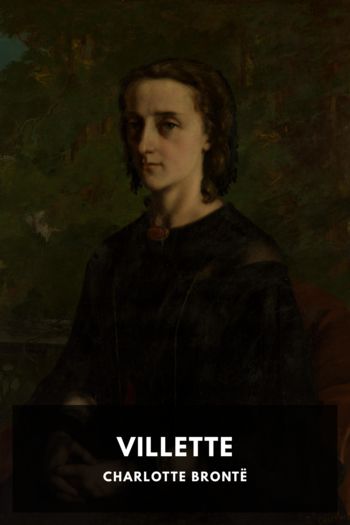Shirley by Charlotte Brontë (best books to read for teens .TXT) 📕

- Author: Charlotte Brontë
Book online «Shirley by Charlotte Brontë (best books to read for teens .TXT) 📕». Author Charlotte Brontë
We have already said that Moore was no self-sacrificing patriot, and we have also explained what circumstances rendered him specially prone to confine his attention and efforts to the furtherance of his individual interest; accordingly, when he felt himself urged a second time to the brink of ruin, none struggled harder than he against the influences which would have thrust him over. What he could do towards stirring agitation in the north against the war he did, and he instigated others whose money and connections gave them more power than he possessed. Sometimes, by flashes, he felt there was little reason in the demands his party made on Government. When he heard of all Europe threatened by Bonaparte, and of all Europe arming to resist him; when he saw Russia menaced, and beheld Russia rising, incensed and stern, to defend her frozen soil, her wild provinces of serfs, her dark native despotism, from the tread, the yoke, the tyranny of a foreign victor—he knew that England, a free realm, could not then depute her sons to make concessions and propose terms to the unjust, grasping French leader. When news came from time to time of the movements of that man then representing England in the Peninsula, of his advance from success to success—that advance so deliberate but so unswerving, so circumspect but so certain, so “unhasting” but so “unresting;” when he read Lord Wellington’s own dispatches in the columns of the newspapers, documents written by modesty to the dictation of truth—Moore confessed at heart that a power was with the troops of Britain, of that vigilant, enduring, genuine, unostentatious sort, which must win victory to the side it led, in the end. In the end! But that end, he thought, was yet far off; and meantime he, Moore, as an individual, would be crushed, his hopes ground to dust. It was himself he had to care for, his hopes he had to pursue; and he would fulfil his destiny.
He fulfilled it so vigorously that ere long he came to a decisive rupture with his old Tory friend the rector. They quarrelled at a public meeting, and afterwards exchanged some pungent letters in the newspapers. Mr. Helstone denounced Moore as a Jacobin, ceased to see him, would not even speak to him when they met. He intimated also to his niece, very distinctly, that her communications with Hollow’s Cottage must for the present cease; she must give up taking French lessons. The language, he observed, was a bad and frivolous one at the best, and most of the works it boasted were bad and frivolous, highly injurious in their tendency to weak female minds. He wondered (he remarked parenthetically) what noodle first made it the fashion to teach women French. Nothing was more improper for them. It was like feeding a rickety child on chalk and water gruel. Caroline must give it up, and give up her cousins too. They were dangerous people.
Mr. Helstone quite expected opposition to this order; he expected tears. Seldom did he trouble himself about Caroline’s movements, but a vague idea possessed him that she was fond of going to Hollow’s Cottage; also he suspected that she liked Robert Moore’s occasional presence at the rectory. The Cossack had perceived that whereas if Malone stepped in of an evening to make himself sociable and charming, by pinching the ears of an aged black cat, which usually shared with Miss Helstone’s feet the accommodation of her footstool, or by borrowing a fowling-piece, and banging away at a tool shed door in the garden while enough of daylight remained to show that conspicuous mark, keeping the passage and sitting-room doors meantime uncomfortably open for the convenience of running in and out to announce his failures and successes with noisy brusquerie—he had observed that under such entertaining circumstances Caroline had a trick of disappearing, tripping noiselessly upstairs, and remaining invisible till called down to supper. On the other hand, when Robert Moore was the guest, though he elicited no vivacities from the cat, did nothing to it, indeed, beyond occasionally coaxing it from the stool to his knee, and there letting it purr, climb to his shoulder, and rub its head against his cheek; though there was no earsplitting cracking off of firearms, no diffusion of sulphurous gunpowder perfume, no noise, no boasting during his





Comments (0)